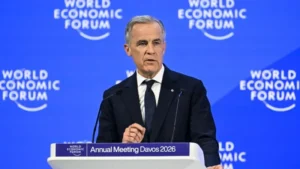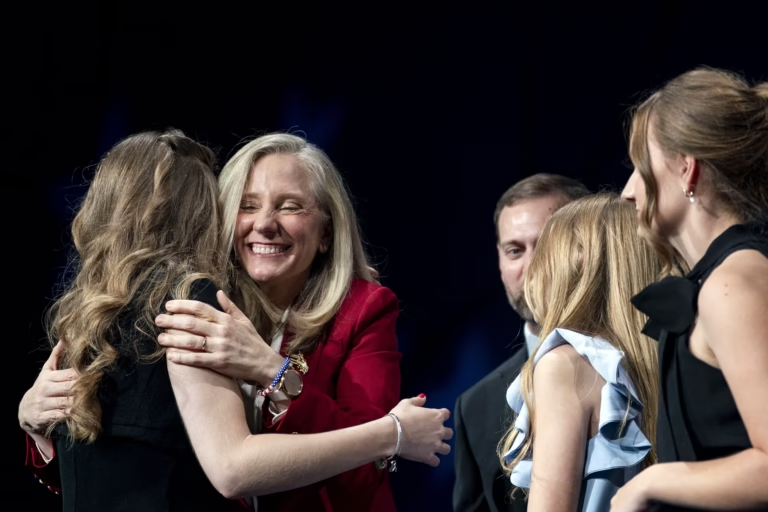Abigail Spanberger has made history as Virginia’s first female governor. Her victory marks a milestone in the state’s 250-year history, where all 74 previous governors were men. Spanberger’s win reflects a campaign rooted in public service, cost-of-living concerns, and careful positioning against former President Donald Trump’s policies.
Born in Red Bank, New Jersey, on August 7, 1979, Spanberger moved to a suburb of Richmond, Virginia, at age 13. She grew up in a family devoted to service; her father was an army veteran and law enforcement officer, while her mother worked as a nurse and volunteer. Spanberger pursued higher education at the University of Virginia, earning a degree in French literature, before beginning a career in public service.
Her early career included work with the US Postal Inspection Service, where she investigated narcotics, child predators, and money laundering, often serving as the only woman on arrest teams. Spanberger then joined the CIA, focusing on counter-terrorism cases and serving undercover overseas.
In 2014, after living on the West Coast, Spanberger and her husband Adam, an engineer, decided to return to Virginia based on the advice of their young daughter. “Everyone we love lives in Virginia,” she recalled at a rally, a decision that marked a shift from service abroad to service within her community.
Back in Virginia, Spanberger became active in volunteer work, joining Moms Demand Action to combat gun violence and starting a Girl Scout troop. In 2017, she ran for Congress in Virginia’s seventh district, a seat no Democrat had won in 50 years. Citing concern over Trump’s policies and repeated votes to repeal the Affordable Care Act, she ran a successful campaign.
In Congress, Spanberger joined the Blue Dog Coalition, a group of centrist and fiscally moderate Democrats. She focused on practical issues, such as expanding broadband to rural areas, supporting veterans, and addressing drug trafficking. Her willingness to work across the aisle earned her a reputation as one of the most bipartisan members of the Virginia delegation.
Spanberger was often compared to Congresswomen Elissa Slotkin and Mikie Sherrill as part of a moderate group dubbed the “mod squad,” contrasting with the progressive “squad.” Her reputation for pragmatism and service-oriented leadership became the foundation of her gubernatorial campaign, announced in November 2023.
Her 2025 campaign highlighted public service, education, infrastructure, and protection of democratic institutions. Spanberger’s CIA experience strengthened her credibility on national security, while her focus on local issues connected with voters across the political spectrum. She successfully navigated attacks from Republican opponent Winsome Earle-Sears, who questioned her positions on civil rights and transgender student participation in sports.
By emphasizing that local school districts should make decisions on such sensitive matters, Spanberger positioned herself as a moderate, responsive leader. Her campaign appealed to Virginia voters concerned about rising living costs, education quality, and pragmatic governance.
Spanberger’s victory signals a broader shift in Virginia politics, demonstrating that centrist, service-focused candidates can win in historically challenging districts. Her election also underscores the increasing recognition of women in executive leadership roles and the importance of addressing both economic and social issues in state campaigns.
As she prepares to take office, Abigail Spanberger governor will face the challenges of balancing policy priorities with pragmatic governance, continuing her record of bipartisan collaboration, and addressing pressing issues for Virginians, from education and infrastructure to healthcare and public safety. Her historic win provides a model for future leaders committed to service, moderation, and results-driven politics.







